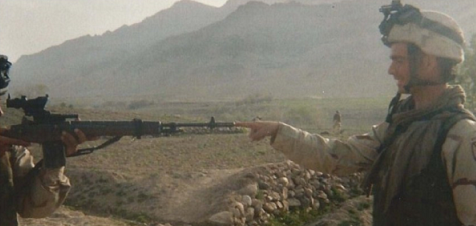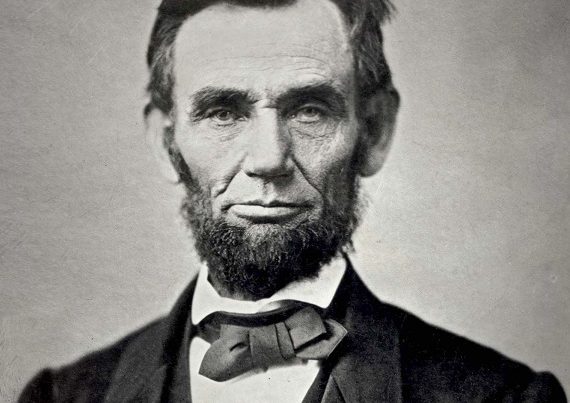As long as there have been soldiers, their ultimate defense mechanism has been dark comedy. Such humor may be the only way to hold on to one’s sanity in response to a profession that’s a volatile mix of pointless exercises, unfathomable rules, long periods of boredom, and flashes of extreme terror. No matter what he’s doing, a soldier on duty takes every step knowing there are people just outside his field of vision who want to kill him as much as he wants to kill them. It’s life’s ultimate contest, and that contest is waged without rules, and too often, without clear goals.
Samuel Finlay was born and raised in Oklahoma, with family and “old Army buddies” from all over the South. Finlay’s fictionalized account of his tour of duty in Afghanistan, Breakfast with the Dirt Cult, is hard to classify. It isn’t a red-white-and-blue “Support our Boys!” kind of tale, nor is it an expose of imperialistic brutes in uniform wielding high-tech machines to murder and subjugate noble savages. So one should not expect this war novel to be “The Green Berets” or “Apocalypse Now.” It is instead a tale that bristles with humor, honesty, and has an edge to it that will alternately have you chuckling or holding your breath.
Rather than a standard tale of heroes or villains, Breakfast with the Dirt Cult is about infantry grunts, the “Hajis” they’re fighting, Army regulations, guns, and the helicopters that whisk them into and out of deadly situations. Oh, and it’s also about sex, or at least, a soldier’s preoccupation with sex. The dialogue is as gritty and real as the soldiers Finlay vividly portrays. Readers are in for a dust-covered view of what US troops — which are disproportionately Southern — face in the never-ending War on Terror.
What makes this novel fascinating is how the protagonist, Tom Walton, reacts to the alien culture of Afghanistan. The war becomes a lens that enables him to see his enemy in unexpected ways. Those insights, in turn, bring Walton’s own culture into sharper, and often unflattering, focus. At a dance, Walton observes the Sexual Liberation Movement’s impact on the relations between men and women:
A few couples danced in the buffer area between the girls and the men who watched them, yet most of those were girls with other girls. The rest of the females stood in adolescent cliques holding drinks they didn’t buy, and generally relishing in their power. They were a pile of deception and the truth was not in them. Walton felt a familiar spike of wry contempt and couldn’t hide his sneer if he’d tried.
So this was the glorious cause for which the feminists had fought. They’d struggled for, and won, a world where men were seen as the problem and women as the solution. Women were deemed inherently “right” and needed a man “like a fish needs a bicycle.” Men, however, were pigs, and were perceived as semi-functional retarded pariahs without a woman. A woman’s sexuality was good and healthy; a man’s, toxic and perverse. (p. 50)
It’s a very different world Walton confronts in Afghanistan. He’s repulsed by much of what he sees, including the way men treat their women. But the contrast between the two cultures also forces Walton into a grudging appreciation for the tenacity and authenticity of his enemy, whom he and his buddies derisively refer to as the Haji. As a Southerner, Walton can sympathize with a worthy opponent:
Haji hadn’t been tamed. He’d kept his traditions and culture. He’d kept his f***ing identity. His village and his tribe meant the world to him, and he defied all comers to remain the sovereign lord over his domain. If you would have told him about things like Ricardo’s Theory of Comparative Advantage, global civil society, or liberal intergovernmentalism, he’d have been pissed off for having his time wasted on such bullshit. He might have even shot you for it if he really felt like showing his nuts. (Coming from a long line of outlaws, settlers, rebels, and hillbillies, Walton had great admiration for stubbornness, and for people who cherished their roots and wanted to be left the hell alone.) Haji’s people went after what they wanted and didn’t apologize for it. (p. 126)
Such observations pepper a book that glows with hard-hitting accounts of what it’s like to climb a rough mountain on patrol in full “battle rattle,” how it feels to slog through a dangerous pass while covered in Afghanistan’s abrasive dust, and how soldiers bond under the unforgiving glare of both the Afghan sun and its resilient, secretive people. Finlay’s writing is energetic and sensuous while simultaneously unpretentious and even seemingly artless at times. His unstylish style gives him the freedom to be honest and funny and profoundly insightful without apparently having any such intention. That’s what good storytelling is all about.







